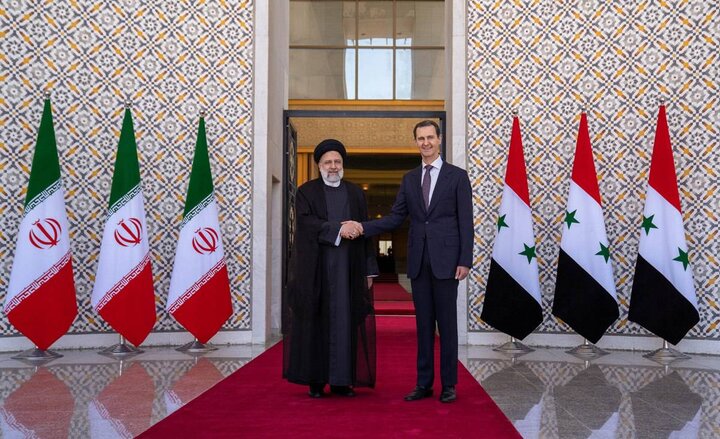In his two-day visit, President Ebrahim Raeisi is accompanied by a large political and economic delegation including many ministers.
Upon his arrival in Damascus, President Raeisi was keen to highlighted the strategic nature of the visit, which he hailed as being in line with the strategic relations between Iran and Syria.
The visit comes at a time when Syria is rising from the ashes of a devastating war whose primary goal was to topple the government of Syria and replace it with a Western-friendly one. Iran, a staunch ally of Syria, rose up to the challenge from day one, providing Damascus with all kinds of support to help it fend off the war.
Much has been said about the reasons why Iran stood by Syria during its long ordeal. Although Iran-Syria relations have always been driven by mutual interests, one aspect of these relations has been particularly neglected which is the historical bond between Tehran and Damascus.
The Iran-Iraq war of the 1980s played an important role in cementing Iranian-Syrian ties as the Syrian government was the only Arab country that wholeheartedly supported Iran in the face of the Ba’sthist aggression.
This is while almost all other Arab countries not only refused to stand with Iran but also sided with the Saddam regime, supplying him with weapons and money.
The Syrian crisis which began in 2011 was an opportunity for Iran to reciprocate. Iran threw its full weight behind the Syrian government as a way to show its gratitude.
The counterterrorism hero
And General Qassem Soleimani the key figure in this effort. He rushed to help the Syrians who were facing a global war in their country. He helped stabilize Damascus and ensured that terrorist groups never take over the Syrian capital. Over the years, he mobilized the Axis Resistance against terrorism, trouncing numerous terror outfits across Syria and the broader region.
During his visit to Syria, Ayatollah Raiesi was keen to pay tribute to the legacy of General Soleimani, who was assassinated by the U.S. in the early days of 2020.
“We consider Martyr Soleimani the hero of fighting terrorism,” President Raeisi said, adding, “He confronted the offensives of ISIS and the Takfiri groups through help from the popular resistance groups in Iraq and Syria, and he was successful.”
Raeisi pointed out that in cooperation with the Iraqi and Syrian people, and in cooperation with Lebanon's Hezbollah, General Soleimani was able to eradicate the stream of terrorists. “Who assassinated him? The US President at the time,” he continued.
The Iranian president stated, “They thought that by assassinating Haj Qasem Soleimani, they would assassinate his thoughts, and they are today seeing the ramifications of this all over the region. The people of the region and its youth are very proud of Soleimani, and he has become a school of thought for our people and the resistance's youth all over the region.”
By: Soheila Zarfam
First published in Tehran Times
























Your Comment